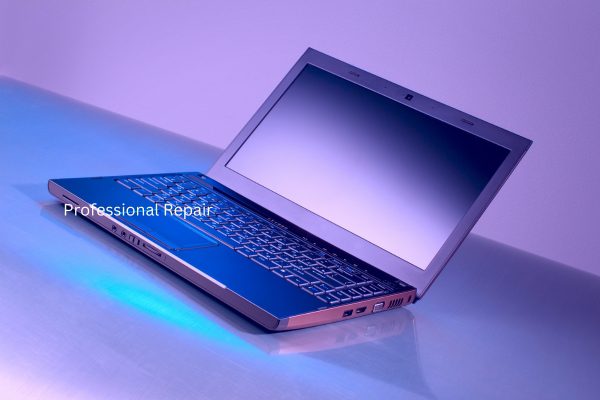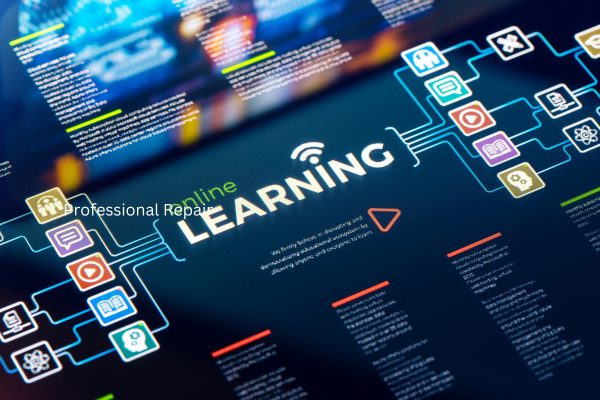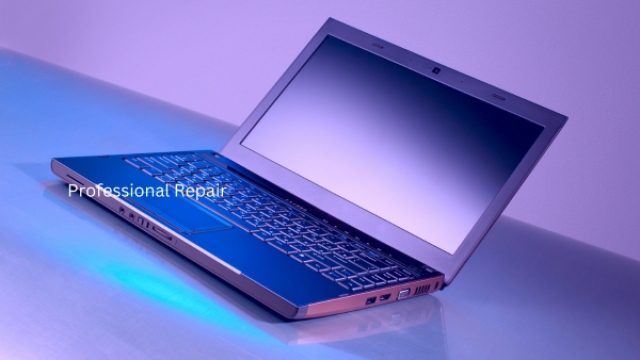Are you ready to embark on the exciting adventure of Chromebook Vs Laptop For homeschooling?
Get ready to make a crucial decision: Chromebook or laptop? In this article,
we’ll unravel the epic battle between these devices, exploring their strengths, quirks, and everything in between.
So, buckle up and join us on this rollercoaster ride as we weigh the pros and cons, share expert insights, and help you make the ultimate choice for your homeschooling journey.
Chromebook Vs Laptop For Homeschooling
What is a Chromebook?
A Chromebook is a type of laptop that runs on the Chrome OS, an operating system developed by Google.
It is designed to primarily work with web applications and relies heavily on cloud-based storage and services.
Chromebooks often have a lightweight design, long battery life, and affordable price tags.
Is Chromebook good for Homeschooling?
Yes, Chromebooks can be an excellent choice for homeschooling.
With their affordable price point, ease of use, and focus on web-based applications,
Chromebooks provide a straightforward and efficient platform for accessing online educational resources, collaborating with peers, and completing assignments.
What is a Laptop?

A laptop is a portable computer that combines a screen, keyboard, trackpad or mouse, and other essential components into a single device.
Laptops are versatile machines that can run a wide range of applications, making them suitable for various tasks, including homeschooling.
Is Laptop good for Homeschooling?
Yes, laptops are generally well-suited for homeschooling.
With their versatility, robust performance, and compatibility with a wide range of software and applications, laptops provide homeschooling students with the flexibility to engage in diverse educational activities, from multimedia presentations to complex coding projects.
Laptop vs. Desktop: Which Is Best for Home School?
When it comes to choosing between a laptop and a desktop for homeschooling, there are a few factors to consider.
While laptops offer portability and flexibility, desktops provide better customization options,
superior performance, and larger displays. Ultimately, the decision depends on your specific homeschooling needs and preferences.
What are the features of a Chromebook and laptop step by step?
The features of a Chromebook and a laptop can vary depending on the specific models and manufacturers.
However, here are some common features you can expect from both:
- Chromebook: Lightweight design, long battery life, access to Google Apps, cloud storage, limited local storage, simplified operating system.
- Laptop: Various sizes and form factors, customizable configurations, wide software compatibility, ample local storage, diverse operating systems (Windows, macOS, Linux).
Advantages of a homeschool laptop and Chromebook
Both laptops and Chromebooks offer advantages for homeschooling:
- Portability: Both devices are highly portable, allowing students to work from different locations within the home or even on-the-go.
- Connectivity: Both laptops and Chromebooks provide internet connectivity, enabling seamless access to online educational resources and communication tools.
- Versatility: Laptops and Chromebooks support a wide range of applications and software, allowing students to explore various subjects and engage in multimedia projects.
What is the best laptop for homeschooling?

The best laptop for homeschooling depends on your specific requirements and budget.
Consider factors such as processing power, storage capacity, display quality, and durability.
Popular options for homeschooling laptops include models from brands like Dell, HP, Lenovo, and Acer.
What is the best laptop for beginners?
For beginners in homeschooling, it’s advisable to opt for a user-friendly laptop that offers a balance of affordability and functionality.
Some recommended options for beginners include the Acer Aspire, Lenovo IdeaPad, and HP Pavilion series.
Realated Artical: How Much Is It To Fix A Dell Laptop Screen
Chromebook vs Laptop for Homeschooling
When comparing Chromebooks and laptops for homeschooling, it’s important to consider your specific needs and preferences.
Chromebooks are budget-friendly, easy to use, and highly optimized for web-based applications.
On the other hand, laptops offer more versatility, greater performance, and the ability to run a wider range of software.
Assess your requirements, consider your budget, and choose the device that aligns best with your homeschooling goals.
FAQs About Chromebook Vs Laptop For Homeschooling
Is a Chromebook good for homeschool?
Yes, Chromebooks are generally a good option for homeschooling.
They are affordable, lightweight, and designed to work seamlessly with web-based applications and online educational resources.
What laptop do I need for homeschooling?
For homeschooling, you’ll need a laptop that meets your specific requirements.
Consider factors such as processing power, storage capacity, battery life, and durability.
Popular options include models from brands like Dell, HP, Lenovo, and Acer.
Is a laptop or desktop better for homeschooling?
Both laptops and desktops can be suitable for homeschooling, but it depends on your needs and preferences.
Laptops offer portability and flexibility, while desktops provide more customization options, superior performance, and larger displays.
What is the best device for Google Classroom?
Both laptops and Chromebooks can work well with Google Classroom, as long as they meet the system requirements and have a reliable internet connection.
Choose the device that aligns with your budget and preferred operating system.
What are the disadvantages of a Chromebook?
Some disadvantages of Chromebooks include limited offline functionality, reliance on internet connectivity, and compatibility issues with certain software applications that are not web-based.
Additionally, they may have smaller storage capacities compared to traditional laptops.
Related Artical: How To Change The Direction Of Mouse On Dual Monitors
Do you need a laptop for homeschooling?
While a laptop is not always necessary for homeschooling, it can greatly enhance the learning experience.
A laptop allows for easy access to online resources, collaboration tools, and multimedia content, providing more flexibility and versatility in homeschooling activities.
Which computer system is better for a work-from-home student?
A laptop is typically a better choice for a work-from-home student. Laptops offer portability, allowing students to work from different locations.
They also provide the necessary power and versatility to handle various tasks, including online collaboration and accessing work-related software.
Why is a laptop better for online learning?

Laptops offer the convenience of portability, allowing students to engage in online learning from anywhere.
They provide a dedicated personal workspace, reliable performance, and compatibility with a wide range of educational software and tools.
Which type of computer is used in homes and schools?
Both laptops and desktop computers are commonly used in homes and schools.
Laptops offer portability and versatility, while desktops provide greater customization options, power, and larger displays for intensive tasks.
What type of computer is suitable for home use?
The type of computer suitable for home use depends on the specific needs and preferences of the users.
Laptops are popular for their portability, while desktops are suitable for those requiring higher performance and customization options.
Which type of computer is most commonly used by students?
Laptops are the most commonly used type of computer by students.
Their portability, versatility, and ease of use make them an ideal choice for completing assignments, conducting research, and collaborating with peers.
Which laptop is best for personal use?
The best laptop for personal use depends on individual needs and preferences.
Consider factors such as budget, desired features, performance, and software compatibility.
Popular options include laptops from brands like Apple, Dell, HP, Lenovo, and Asus.
Final Thoughts About Chromebook Vs Laptop For Homeschooling
In conclusion, both Chromebooks and laptops can be viable options for homeschooling, each with its own strengths.
Chromebooks offer affordability, simplicity, and seamless integration with web-based educational tools.
On the other hand, laptops provide versatility, greater performance, and compatibility with a wider range of software.
The choice ultimately depends on your specific needs, budget, and preferences.
Consider factors such as portability, software requirements, and desired functionality to make an informed decision.
Regardless of the device you choose, remember that the key to successful homeschooling lies in creating a conducive learning environment, leveraging online resources, and fostering engagement and curiosity in your child’s educational journey.

